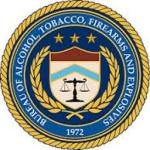Last week the Center for American Progress issued a lengthy and detailed report on the ATF recommending the agency be taken over by the FBI because the ATF has “struggled to define a coherent and manageable mission.” The media immediately noted that the CAP, a Democratic-leaning operation, was now joining a Republican Congressman, Jim Sensenbrenner, who last year introduced a bill basically calling for the same thing. Of course the NRA came out against any change in ATF’s status because the only problem with ATF is that it reports to you-know-who at 1600 Pennsylvania Avenue which makes it more important to change his status than to make any changes in any Federal agency. Gee, what a surprise.
But getting back to the ATF, I not only read the entire CAP report and wrote a comment about it on this website; I also read the report issued by the Government Accounting Office in 2014 on which the Sensenbrenner bill was based. And it was in this latter document that I found some extraordinary nuggets of information about the way in which ATF handles investigations of individuals who fail background checks, a situation for which, as a dealer, I have been personally involved.
 Among other things, the GAO report examined how ATF monitors investigations of NICS checks that are known as “delayed denials.” As far as I know, this GAO report marks the first time that the issue of ‘delayed denials’ has ever been mentioned in public or in print. You can search every piece of literature on the NICS system produced by ATF or FBI and you won’t find the issue of delayed denials discussed even once. So let me first tell you what it means.
Among other things, the GAO report examined how ATF monitors investigations of NICS checks that are known as “delayed denials.” As far as I know, this GAO report marks the first time that the issue of ‘delayed denials’ has ever been mentioned in public or in print. You can search every piece of literature on the NICS system produced by ATF or FBI and you won’t find the issue of delayed denials discussed even once. So let me first tell you what it means.
When a gun dealer transmits information on a sale to NICS, the latter responds either with a ‘proceed,’ a ‘deny’ or a ‘delay.’ The first two responses are obvious, either the sale goes forward or it does not. The last response means that the FBI now has three additional days to investigate further, but if their investigation isn’t finished by the fourth day, the dealer at his discretion can release the gun. But what if this investigation ultimately results in a gun being released to someone who turns out to a ‘prohibited person’ and therefore not allowed to own a gun? Such cases are then referred to the ATF whose job it is to go out and take the gun away as well as to investigate whether the buyer lied on the 4473..
According to the FBI, the NICS system has resulted in more than 1,200,000 denials since the system went operational back in 1998. That’s all well and good except that we have no data on how many of those denials were delayed and therefore would only result in the prohibited person losing the gun if the ATF went out, brought the gun back and investigated the person who obviously lied on the NICS 4473 background-check form. The GAO discovered that not only doesn’t the ATF maintain reliable data on how many of these investigations have actually taken place, they also don’t know whether such investigations, if they occurred at all, resulted in the return of an otherwise-prohibited gun. In my own experience as a dealer I recall three such instances of delayed denials, and in none of the cases did my ATF field office demonstrate the slightest interest or concern in tracking down the prohibited individual or the gun.
The ATF has gone out of its way to make spurious claims about the value of its regulatory efforts, but such self-congratulatory pronouncements begin to collapse in the wake of findings by the GAO and the CAP. What saved the ATF after Fast and Furious was a stupid and partisan decision by Rep. Darrell Issa (R-CA) to embarrass Obama rather than to focus on how to repair an agency which, according to Congressman Sensenbrenner, is now beyond repair. We’d probably all be better off if regulating the gun industry started over again from scratch.
Leave a Reply